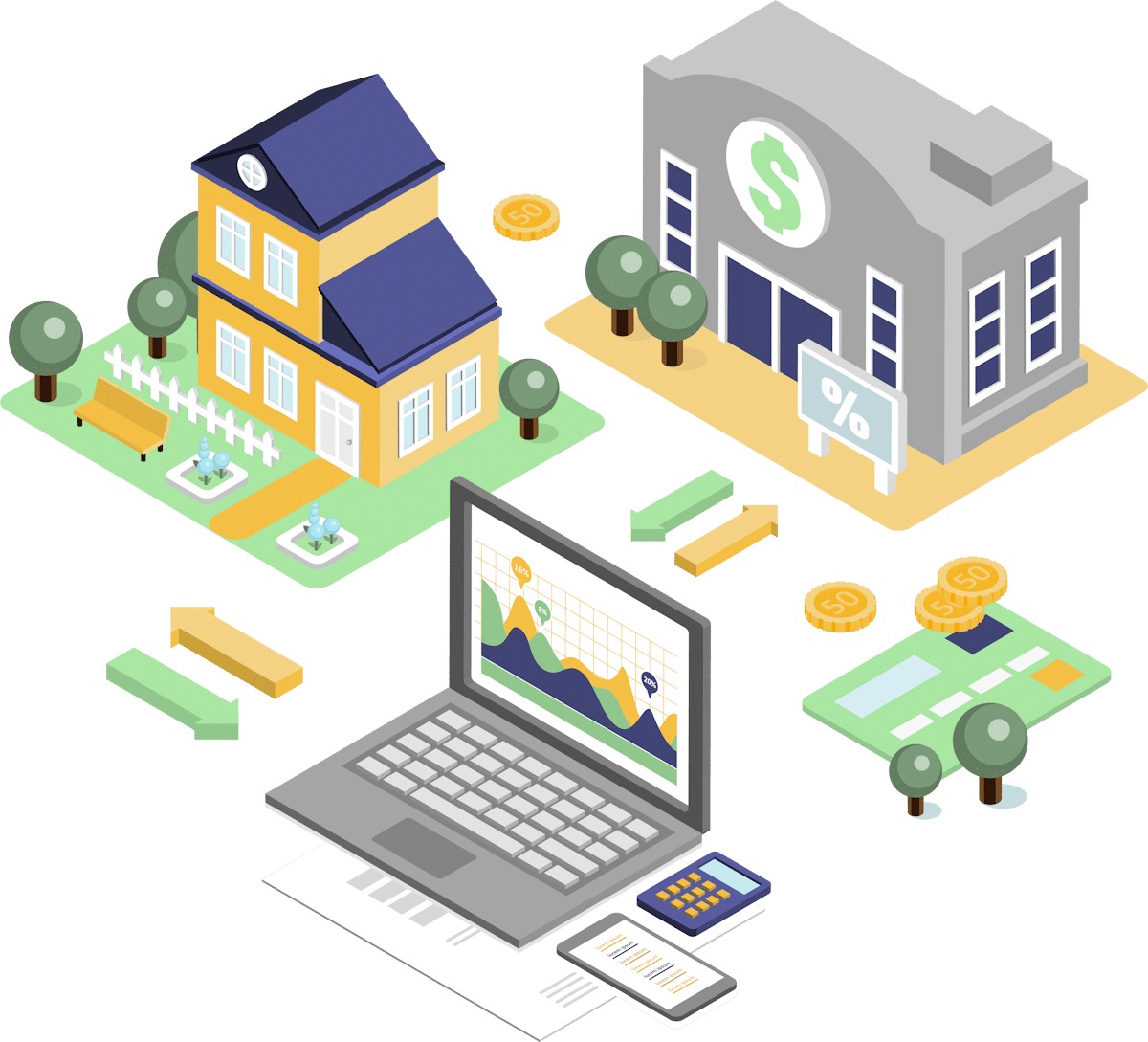
Should I Take Out A Second Mortgage?
Take advantage of your home’s value, a second mortgage could be just what you need.

Take advantage of your home’s value, a second mortgage could be just what you need.
Taking out a second mortgage on your home is a significant financial decision with many pros and cons. It can be a useful source of funding for home improvements, education costs, consolidating debt, or avoiding private mortgage insurance. In this article, we’ll walk you through all the information you need if you’re considering this option.
You’ve likely heard of a second mortgage, but do you know exactly what it means? A second mortgage is a loan that is borrowed against a property that already has a mortgage. (Not to be confused with a mortgage that is taken out on a second home.) This type of loan would offer access to the equity that you have accumulated on your property.
Equity in your home grows as you make monthly payments that reduce the remaining balance on the mortgage. There are additional ways to increase equity, including home improvements and taking advantage of a robust housing market when homes are selling at higher prices than usual. Your total equity is the value of your home, less the remaining balance of your mortgage.
If you choose to take on a second mortgage, you’ll be reducing the amount of equity that you have in your home. The second mortgage will increase the balance of the loan that you owe to your mortgage lender. Tapping into equity is a convenient way to fund an expensive project, but there are several factors to consider before moving forward.
Not all second mortgages are the same. Generally, a borrower will come across two types of loan options: Home Equity Loans and Home Equity Lines of Credit. Let’s break down the difference between them:
A Home Equity Loan is distributed as a lump sum, meaning the borrower receives the total amount of the equity they choose to borrow upfront. The borrowed equity must be paid back to the lender according to the terms of the loan, which typically ranges from 5 to 30 years. This is an excellent option for someone who needs a lot of cash for a large expense, like a major home renovation project.
A Home Equity Line of Credit (HELOC) is a kind of “revolving credit.” HELOCs are similar to credit cards in that they create access to a predetermined amount that can be borrowed as needed. As the funds are paid back, they become available again for borrowing. A lender may even provide special checks or a credit card for the account. The critical detail to consider is the “draw-period.” At the end of the draw period, a borrower may have to pay the balance due in full.
Not sure which second mortgage option is best for you? Reach out to an expert On Q Home Loans Mortgage Consultant to discuss your specific needs. We are here to help!
Interest rates tend to be higher on a second mortgage than the first, as lenders often consider a second mortgage an increased risk. In a pinch, homeowners will prioritize payments due on their original mortgage to avoid foreclosure; therefore, banks are hesitant to lend funds that they are less likely to recover.
Second mortgage rates do tend to be lower than that of a credit card, making them a viable option for debt consolidation. Instead of paying a high interest rate on multiple credit card balances, a borrower can use a second mortgage to pay them off at once. Consolidating creates just one payment with a lower interest rate, resulting in significant savings over time. It is a big decision, though, so it’s best to consult a financial expert to weigh all the options.
We’ve already hinted at some of the ways a second mortgage may or may not be suitable for you. Before committing to taking on the debt, here are some additional factors, good and bad, that should be kept in mind.
Your first step in taking out a second mortgage will typically be to obtain a current appraisal. Hopefully, your home value has increased since its original purchase. A new appraisal will give you a more accurate estimate of how much equity you currently hold.
Next, you will want to gather and document your current income and debts. You may recall the debt-to-income ratio from when you first bought your home. Knowing what amount you can afford to spend on monthly payments will be a determining factor in the approval process for the second mortgage.
Your lender will advise you on the information and documentation you’ll need. It’s important to review any fine print on the loan contract to make sure you understand the terms of the agreement and are confident in meeting your commitment. Budgeting becomes even more necessary when you have to pay both the original and second mortgage.
On Q Home Loans knows there is no one-size-fits-all mortgage. If you’re ready to look into a second mortgage on your home, contact one of our expert On Q Home Loans Mortgage Consultants to learn more. Our mortgage consultants are here to help you find options tailored to your specific needs. The best part is our Mortgages Simplified™ journey means less stress and more ways to say yes! Reach out today!
Every homeowner’s worst fear is losing their home. During financial hardships, that fear can make a stressful situation even worse. Read on to learn Loss Mitigation and How to Save Your Home.
How to Save Your Home